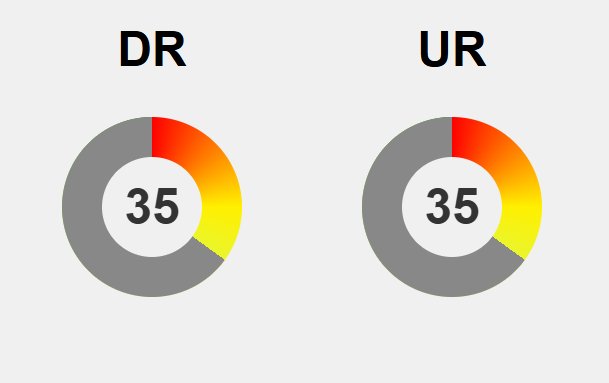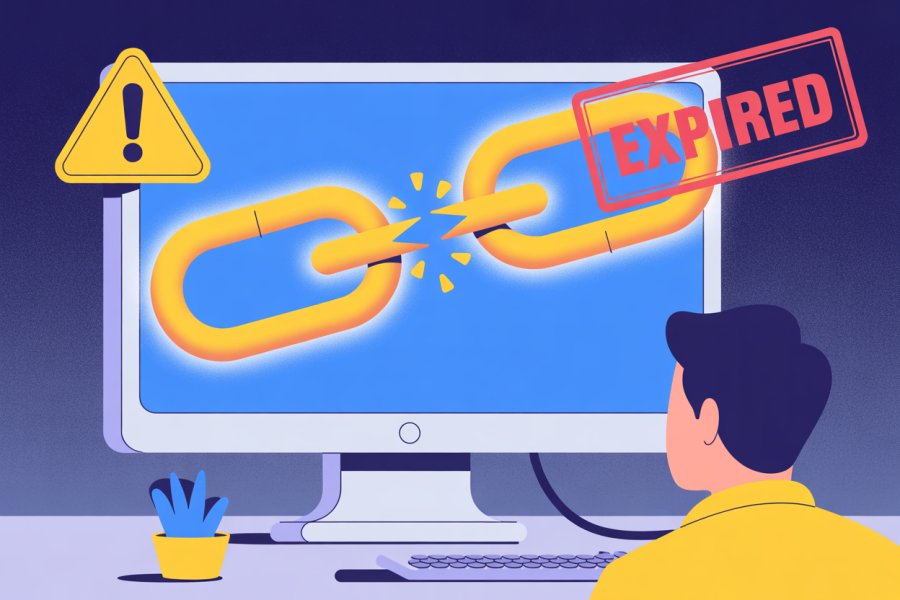Galileo Galilei’s revolutionary discoveries transformed our understanding of the cosmos, challenging centuries-old beliefs rooted in tradition and religious authority. His use of the telescope revealed a dynamic universe far more complex than the geocentric model, pushing science toward observation and evidence. Yet, this bold pursuit placed him at odds with the church, culminating in his trial and forced recantation—raising a provocative question: was Galileo a martyr for progress? His unwavering commitment to truth, despite personal sacrifice, made him a symbol of intellectual courage and resistance against dogma. But was his story one of pure heroism or a nuanced struggle between conviction and survival? Galileo’s legacy endures not just through scientific breakthroughs but as a testament to the power—and peril—of questioning authority. His life exemplifies how progress often demands defiance, sacrifice, and the relentless pursuit of truth, inspiring future generations to challenge the status quo in the name of knowledge.
Galileo’s Revolution: Transforming Our Understanding of the Universe
Galileo Galilei is widely recognized as the father of modern science, a title that speaks to how profoundly he reshaped our understanding of the universe. Before his time, most believed in a cosmos centered around Earth, with the heavens as perfect, unchanging spheres—a view rooted in Aristotle and Ptolemy’s ancient models and reinforced by religious teachings. Galileo’s innovations, especially his use of the telescope, shattered this long-held picture. For the first time, humans could see planets and moons in detail, revealing a universe far more dynamic and complex than previously imagined.
His observations of Jupiter’s moons and Venus’s phases provided concrete evidence that challenged the geocentric model. These discoveries laid the groundwork for the scientific revolution, shifting focus from reliance on ancient texts and philosophy to direct observation and evidence. Galileo emphasized testing ideas against the real world, marking a pivotal shift in how science was practiced—moving toward a method rooted in experimentation and proof.
But these breakthroughs did not come without risk. Galileo’s support for the heliocentric model—placing the Sun at the center—clashed directly with the church’s teachings, which saw Earth as the universe’s fixed point. His findings threatened the authority of religious doctrine, which intertwined with cosmology and spiritual authority. This confrontation with power placed Galileo in the crosshairs of institutions determined to maintain control over knowledge and belief.
Galileo’s resistance reached a climax when he was tried by the Roman Inquisition in 1633. Under immense pressure, he was forced to recant his support for heliocentrism and was placed under house arrest for the rest of his life. Despite this, his commitment to truth never wavered. His willingness to stand by his observations, even when risking everything, turned him into a symbol of defiance against dogma and authority.
This story raises a compelling question: was Galileo a martyr for progress? His sacrifices—trial, censorship, imprisonment—highlight his deep belief that evidence and inquiry are essential to understanding the universe. His life exemplifies the struggle between innovation and tradition, and his defiance continues to inspire those who challenge authority in pursuit of knowledge.
Shattered Paradigms: The Medieval Cosmos Before Galileo
Before Galileo’s groundbreaking discoveries, the scientific landscape was dominated by medieval ideas that placed Earth firmly at the universe’s center. This geocentric view, rooted in the works of Aristotle and Ptolemy, had been accepted for centuries as the ultimate explanation of the cosmos. Knowledge was largely based on tradition, ancient texts, and philosophical reasoning rather than direct observation. The church played a central role in shaping this worldview, often interpreting scientific questions through a theological lens to reinforce its spiritual authority.
Challenging these long-standing beliefs was nearly unthinkable. Scholars were expected to uphold Aristotle’s and Ptolemy’s models without question, and deviation could lead to severe punishment or social ostracism. The idea that Earth might not be the universe’s center was seen as heresy, threatening both scientific norms and religious doctrine. This created a culture where innovation was suppressed, and new ideas struggled to gain acceptance unless they aligned with church teachings.
The universe was viewed as a fixed, hierarchical realm, with celestial bodies moving in perfect circles—a divine order that left little room for doubt or exploration. The heavens were considered divine and unchanging, reinforcing the belief that Earth held a special, central position. While this worldview provided comfort and stability, it also limited curiosity, making it difficult for thinkers to question or investigate beyond accepted boundaries.
The advent of new technology and methods began to crack this ancient worldview. Galileo’s use of the telescope—a relatively new invention—allowed him to see celestial bodies in unprecedented detail. Observations of Jupiter’s moons and Venus’s phases directly challenged the idea that everything orbited Earth. These discoveries hinted that the universe was more complex and less centered on our planet than previously thought, planting seeds for a scientific shift rooted in empirical evidence.
Galileo’s emphasis on observation over tradition marked a revolutionary shift. Instead of relying solely on ancient texts or religious doctrine, he used direct visual proof to support new theories. This approach laid the groundwork for the scientific method, prioritizing testing and evidence over dogma. While progress was slow and met with resistance, these early steps began to reshape human understanding of the cosmos.
This changing environment set the stage for a profound transformation. The emerging focus on experimentation and observation challenged the authority of classical authorities and religious institutions alike. It fostered a culture that gradually moved toward questioning long-held assumptions and seeking answers based on tangible evidence. Galileo’s innovations served as a catalyst, inspiring others to look beyond tradition and explore the universe with fresh eyes.
Despite the initial hostility, the innovations that emerged during this period eventually undermined the old worldview. The shift from faith-based explanations to evidence-based science marked the dawn of the modern era. Galileo’s work was pivotal in this transition, as it demonstrated that direct observation could overturn centuries of accepted wisdom. This environment of nascent curiosity and cautious exploration ultimately paved the way for the scientific revolution.
Challenging the Powers: Galileo’s Defiance of Authority
Galileo’s challenge to authority marked a pivotal moment that reshaped both science and society. His support for the heliocentric model directly questioned the long-standing geocentric view upheld by the Catholic Church, which placed Earth at the universe’s center. Using his telescope as evidence, Galileo revealed that Jupiter’s moons and Venus’s phases did not fit the traditional model, making his stance even more provocative. This wasn’t just a scientific debate; it was a direct challenge to the church’s spiritual authority and its interpretation of scripture.
As Galileo’s ideas gained traction, the church perceived them as a threat to its teachings and control. In 1633, he was summoned before the Roman Inquisition on charges of heresy. Under intense pressure, he was forced to publicly recant his support for heliocentrism, fully aware that refusal could mean exile or worse. Yet, even after recanting, Galileo’s belief in his findings remained firm. He continued to hold and secretly defend his observations, embodying a quiet resistance that defied institutional power.
This confrontation laid bare how deeply intertwined religion and science were at the time. The church relied heavily on biblical texts to explain the cosmos, viewing any scientific discovery that contradicted scripture as a direct attack on spiritual authority. Galileo’s discoveries threatened to rewrite the divine order, prompting fierce resistance from church officials who feared losing control over the universe’s explanation. Their response was not just about protecting dogma but maintaining their moral and political dominance.
Galileo’s defiance extended beyond mere disagreement; it was a bold stand for scientific independence. His willingness to face trial and censorship demonstrated his unwavering commitment to truth and evidence. His trial became a symbol of the broader struggle between free thought and institutional power, illustrating the risks faced by pioneers pushing revolutionary ideas. Despite the setbacks, his courage started to chip away at the authority of dogma, inspiring others to question and explore.
His resistance ultimately challenged the limits of institutional power. The church’s attempt to suppress heliocentrism failed to contain Galileo’s influence, which continued to grow beyond the courtroom. His story is a testament to how questioning authority and demanding evidence can threaten entrenched interests but also pave the way for progress. Galileo’s fight for scientific independence redefined the relationship between knowledge and power, leaving a legacy that encourages future generations to stand up for reason and inquiry.
Today, Galileo’s legacy continues to inspire those who advocate for scientific freedom and critical thinking. For a deeper understanding of his enduring influence, you can explore more about his life and work in this comprehensive biography: Galileo’s Biography.
Martyr for Progress? Evaluating Galileo’s Sacrifices and Legacy
Galileo’s sacrifices have led many to see him as a true martyr for scientific progress. His willingness to face trial, censorship, and house arrest rather than abandon his discoveries highlights his unwavering dedication to the pursuit of truth. Unlike those motivated by fame or personal gain, Galileo seemed driven by a conviction that evidence and reason should guide our understanding of the universe. His sacrifices weren’t about recognition but about pushing forward a new way of thinking—one rooted in observation and experimentation rather than dogma.
Many view Galileo as a symbol of intellectual courage—someone who paid a high price for challenging the established order. His recantation under threat doesn’t erase the fact that he continued to believe in his findings. His trial and punishment underscore the risks faced by those daring to question powerful institutions. His story resonates because it exemplifies standing firm in the face of overwhelming opposition, inspiring others to prioritize truth over conformity.
However, some argue that calling Galileo a martyr oversimplifies his story. He did make compromises, recanting his heliocentric views to save himself from harsher punishment. This nuance reveals the complex realities of navigating institutional power—sometimes resisting, sometimes capitulating. Recognizing these choices doesn’t diminish his legacy but offers a fuller picture of a man caught between conviction and survival, navigating dangerous waters with courage.
Despite these complexities, Galileo’s unwavering stance in the face of severe consequences left a lasting impression. His example demonstrated that scientific progress often demands personal sacrifice, especially when challenging deeply rooted beliefs. His resilience became a symbol of resistance—proof that standing up for truth can come with a high cost but also lead to profound change. His story continues to inspire those committed to free thought and inquiry.
Whether labeled a martyr or not, Galileo’s life embodies the relentless pursuit of knowledge against formidable odds. His courage in challenging authority and risking everything for discovery helped transform science and society. His sacrifices and convictions remind us that progress often requires boldness and the willingness to confront entrenched power. His legacy endures as a testament to the importance of standing up for truth, no matter the cost.
Reflections on a Trailblazer: Galileo’s Enduring Impact and Lessons
Galileo’s story leaves a lasting imprint because it exemplifies how progress often demands courage and defiance. His relentless pursuit of evidence and truth set the stage for modern science, showing that questioning accepted beliefs is essential for societal growth. By standing firm against powerful institutions, he proved that curiosity and critical thinking can challenge tradition and dogma, opening new horizons for understanding the universe.
His discoveries—like Jupiter’s moons and Venus’s phases—revolutionized our view of the cosmos. They provided concrete proof that Earth is not the universe’s center, challenging long-held assumptions rooted in tradition and faith. Galileo’s emphasis on direct observation over reliance on ancient texts or religious authority helped establish a scientific approach grounded in experimentation and evidence, shaping the very foundation of modern science.
Yet, Galileo’s legacy extends beyond scientific breakthroughs. It’s about fighting for intellectual freedom against oppressive forces. His clash with the church, and the sacrifices he made—including trial and house arrest—highlight the high price of challenging entrenched dogma. Despite the hardships, he refused to abandon his pursuit of truth, becoming a symbol of resistance that continues to inspire free thinkers and explorers today.
While some see him as a martyr, it’s clear that Galileo navigated complex choices. His recantation under threat doesn’t erase his genuine belief in his discoveries. His life underscores that progress often involves personal risk and moral compromise, but also unwavering conviction. His resilience and refusal to accept silence laid the groundwork for the broader acceptance of scientific inquiry and the questioning of authority.
Galileo’s enduring legacy reminds us that progress is rarely smooth. It requires boldness, a willingness to confront power, and a steadfast commitment to truth. His courage in the face of opposition transformed not only science but also the way society values evidence and free thought. His story encourages us to question, to challenge, and to stand up for what is right, even when it’s difficult.
Today, his life continues to inspire those who believe in the power of knowledge to challenge injustice and expand understanding. Galileo’s fight for truth, despite the personal toll, exemplifies the spirit of scientific independence and intellectual bravery. His legacy proves that meaningful change often begins with daring to question the status quo.
In the end, Galileo’s journey reminds us that the pursuit of knowledge is a courageous act—one that can reshape worlds. His willingness to challenge authority and embrace evidence changed the course of history, demonstrating that progress belongs to those who dare to stand against the odds. His story is a testament to the enduring power of inquiry, perseverance, and unwavering belief in the truth.




